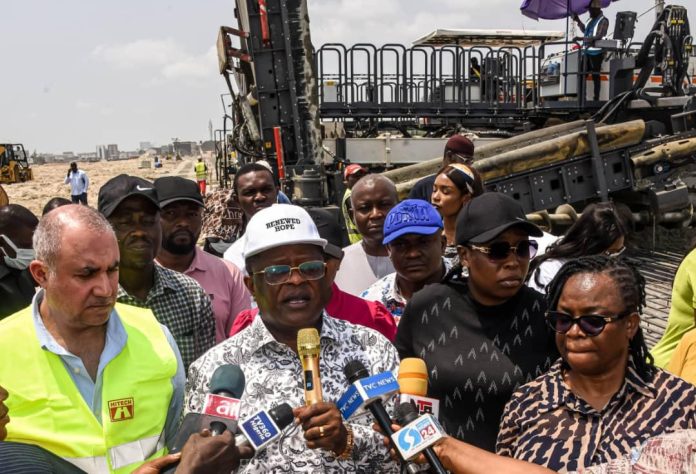The Federal Government has decided to shift the Lagos-Calabar Coastal Highway inland to avoid expensive bridge construction across five states.
Minister of Works David Umahi announced the redesign on Sunday during a stakeholders’ meeting in Lagos. He explained that the new route would prevent the need for multiple long bridges in Ondo, Delta, Rivers, Akwa Ibom, and Bayelsa states. The move aims to cut costs and ensure a return on investment.
Cost-Cutting Strategy
Umahi detailed the reason behind the realignment:
“For the sections of Ondo, Delta, Port Harcourt, Akwa Ibom, and Bayelsa, we are faced with many bridges, some as long as three kilometers. We don’t want that. It would be too expensive. So, we are redesigning, moving the highway inland to eliminate about 90 percent of the bridges. This will make it cost-effective and ensure a return on investment.”
The N15 trillion project was expected to connect major economic hubs but now seems to bypass key commercial areas in the Southeast.
However, the change has sparked controversy online. Critics argue that a “coastal” highway should follow the coastline.
On X, @FinPlanKaluAja1 expressed skepticism:
“Did I not tell you? So it’s no longer a coastal road? Ok. We have an East-to-West road, which is not completed. Is this new road not a duplication?“
Another user, @Eric_NiceGuy, claimed the government lacked a clear plan:
“They will eventually link that road to the East-West road. No way they will construct a new road. They have no plans before, they are just making it up as they go.“
Despite the backlash, the government insists the changes will reduce costs and boost economic activity. The Lagos-Calabar Coastal Highway was initially planned as a major economic corridor to connect states, promote tourism, and support renewable energy initiatives.
Umahi also confirmed that sections three and four, covering Cross River and Akwa Ibom, would begin soon. However, he noted that construction depends on approval from the Bureau of Public Procurement (BPP).
The realignment follows an earlier decision to terminate a controversial section that would have displaced residents in Okun-Ajah and disrupted submarine cables.
The previous demolitions of beachfront businesses, including LandMark, led to losses worth millions of dollars.
Like 👍, Comment, share this article, and Follow us on our social media handles.








